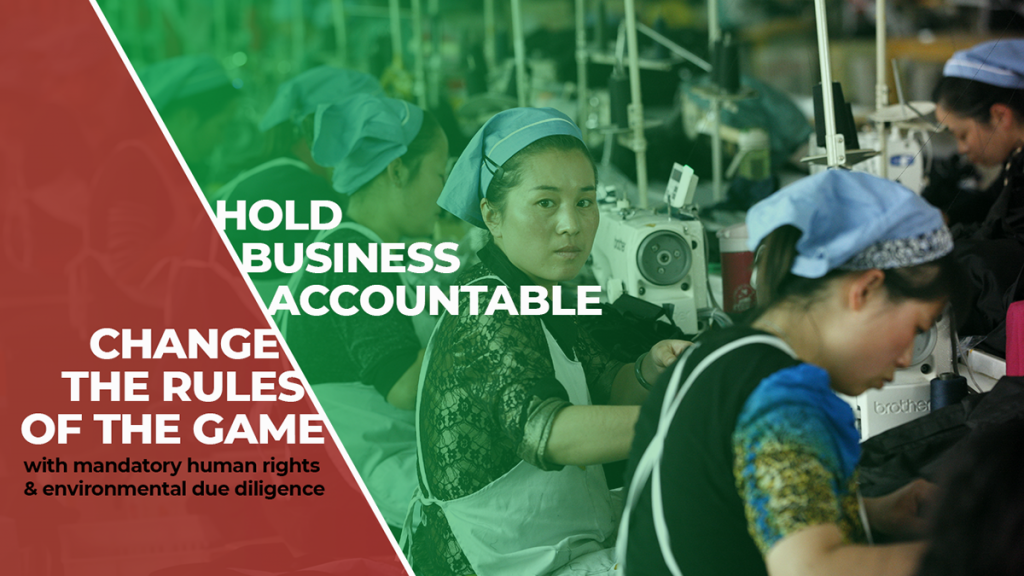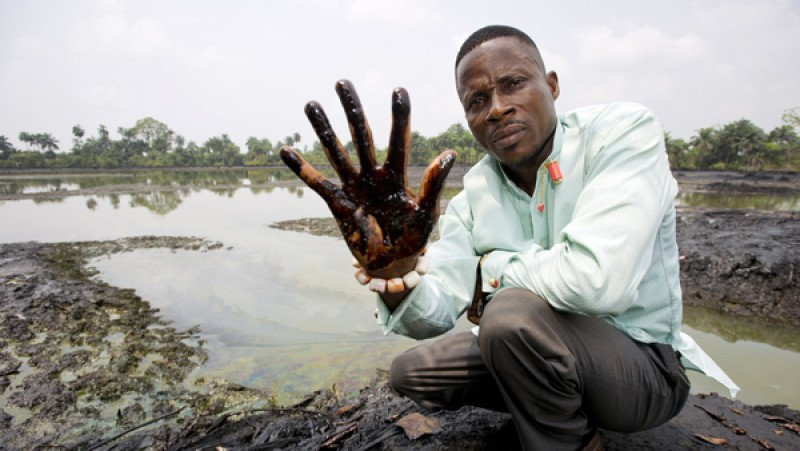What to expect from the European Commission’s sustainable corporate due diligence proposal
On 23 February, the European Commission will finally unveil its Corporate Sustainability Due Diligence proposal. The legislation aims to set out obligations for companies (based in or operating within the EU) to address human rights and environmental risks in their global value chains. The law could be a true game-changer for corporations’ impact on the planet, or it could be a damp squib if big business lobbies get their wishes. Friends of the Earth Europe will be looking closely at this proposal to assess whether it brings due justice for communities and workers around the world and the climate action we need.
Jill McArdle, corporate accountability campaigner at Friends of the Earth Europe said:
“This law has to properly empower people suffering from corporate abuse to take their perpetrators to court. People in Uganda whose land has been grabbed by Total, are exhausted and hungry after waiting over two years for compensation. They cannot live on empty words.”
WHAT’S HAPPENING? Key components of the new legislation
These key aspects will show if the legislation truly makes a difference:
# Civil liability and access to justice
Victims and affected people – especially those in the Global South – face massive obstacles when they try to resist dangerous activities or get justice. The legislation must make corporations liable for harms done by their subsidiaries and in their value chains. This means that people whose rights are violated by corporations can take the parent company to court in its home country, to get compensation and remedy. It is also crucial that companies are liable for actual harm, not only for failure to fulfill a due diligence plan. Otherwise victims have to prove that a company has not done proper due diligence, and companies can easily find loopholes to shield themselves from liability.
Other obstacles victims from outside Europe face when trying to get justice – like time limitations on bringing cases, or the unfair burden on victims to prove things that only the company can know – must be addressed too.
# Climate obligations
The victory in theShell climate case in the Netherlands showed that time is up for corporations’ empty promises on climate action. The Paris Agreement can and should be translated into clear obligations for companies to reduce emissions throughout their value chains. The EU already asks companies to report on their efforts to bring their business in line with Paris Agreement goals – but there is no corresponding obligation on them to actually curtail their climate damage.
This new law must change that. It must include an obligation for companies to put in place plans to reduce greenhouse gas emissions, in line with the Paris Agreement, including concrete targets for the short, medium and long term – to make sure action is not postponed until it is too late. It must make sure companies address their total emissions, covering their whole value chain. It should exclude ‘net zero’ calculations which often amount to greenwashing.
# The strength of the corporate obligations
The proposal needs to include a general duty of care that obliges corporations to prevent human rights and environmental harm. A due diligence plan should not be a box-ticking exercise. This duty must make corporations responsible for preventing harm by their subsidiaries – which shockingly is not the case now. It must also extend to their direct and indirect suppliers throughout their value chains.
The legislation must avoid offering loopholes for corporations to dodge their duties. It must not allow offloading of obligations to smaller companies, for example through contractual assurances that let the bigger companies off the hook for preventing harm. Industry initiatives and third-party audits and certifications have shown to be unreliable and should not be relied on in this law.








